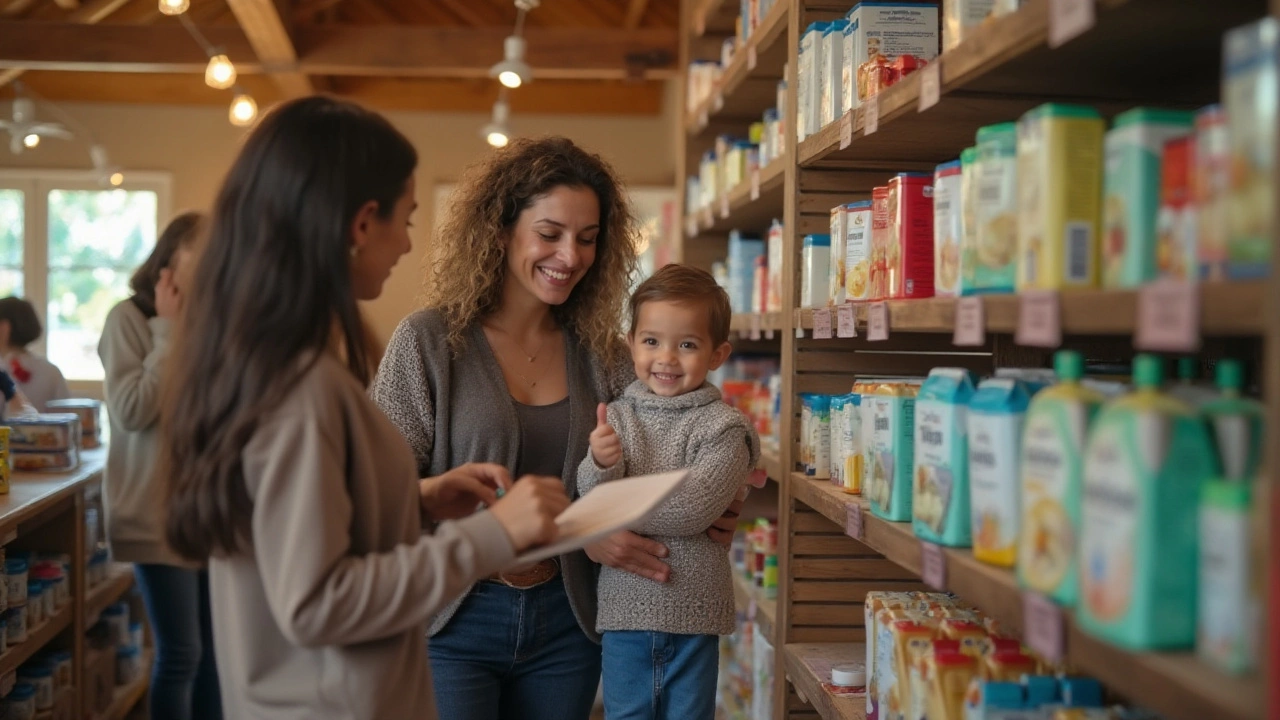Emergency Formula: Quick Help for Parents
When your baby’s tummy is growling and the pantry is empty, panic can set in fast. An emergency formula plan saves you from that stress. It’s all about knowing where to turn, what to use safely, and how to act fast. Below you’ll find the most practical steps you can take right now.
Where to Find Free or Low‑Cost Formula
First stop: local charities. Many UK baby banks, food banks, and NHS trusts keep a supply of ready‑to‑use formula for families in crisis. Call your nearest food bank or visit their website to ask about "baby formula vouchers" – they’re often free and require only a simple proof of need.
Second, check the big brands’ sample programmes. Companies like Aptamil, Cow & Gate, and HiPP run regular "free sample" offers on their sites. Sign up, fill in your address, and you’ll get a few tins in the post. It’s not a long‑term solution, but it buys you time.
Third, ask your GP or health visitor. They can write a prescription for formula if your baby has a medical need, which you can collect from any pharmacy at no cost. This route is fast and fully covered by the NHS.
Safe DIY Options in a Pinch
If you run out completely and can’t get a delivery right away, a short‑term, safe homemade mix can keep your baby fed until help arrives. Use boiled water cooled to around 70°C, add a measured amount of powdered formula (the amount printed on the tin), and stir until fully dissolved. Never use tap water straight from the tap or milk substitutes unless a health professional says it’s okay.
Old‑fashioned “homemade formula” recipes that use rice cereal or oatmeal are risky – they lack essential nutrients and can cause gut issues. Stick to the standard powdered mix and follow the exact measurements. If you’re ever unsure, call the NHS 111 line for advice before feeding.
Keep a small emergency kit in your diaper bag: a sealed tin of powder, a clean bottle, a measuring scoop, and a bottle of boiled‑then‑cooled water. Rotate the kit every three months so nothing expires.
Finally, make a checklist so you don’t forget anything when panic hits:
- Phone numbers for local baby banks and your GP.
- Website links for formula sample programmes.
- Emergency kit items – powder, bottle, scoop, boiled water.
- Quick note on proper mixing ratios.
- Allergy information for your baby.
Having this list on your fridge or in a notes app means you can act in seconds, not minutes. Remember, an emergency formula plan isn’t about replacing regular feeding – it’s a safety net for those sudden gaps.
Stay calm, follow the steps, and you’ll get through any formula shortage without compromising your baby’s health. You’ve got this.

Finding Baby Formula in an Emergency: Essential Tips for Parents
In emergency situations, finding baby formula can be quite stressful for parents. This article explores various options where parents can secure formula quickly, including local resources and community help. It also provides practical advice for ensuring formula safety and tips for effectively managing such situations. Understanding available alternatives can alleviate anxiety and ensure a steady supply of nutrition for infants. Whether it's a sudden shortage or unforeseen event, these insights aim to provide peace of mind.
view more